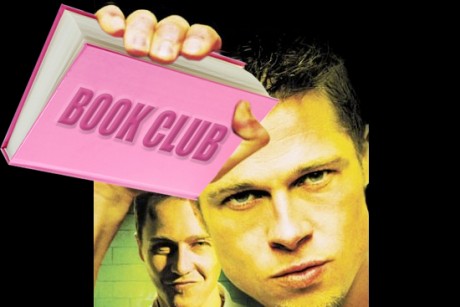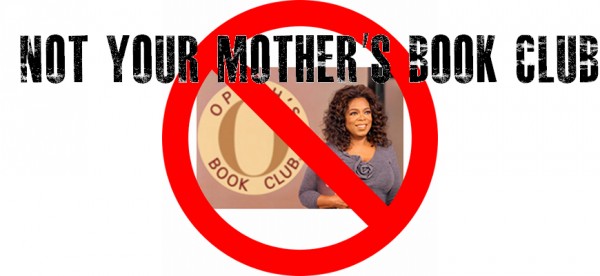This week my Facebook and Twitter feeds filled up with comments about the Man Book Club, featured in Jennifer Miller’s New York Times article. This club is for men, by men, and feature men. In fact, the golden rule of the Man Book Club is: “No books by women about women.” And the International Ultra Manly Book Club, also featured in the article, announces they are “not your mother’s book club.”
At first blush, these clubs appear transgressive. Book clubs are, after all, associated with women. Men getting together to chat about the book of the month seems out of the ordinary or even humorous. One member noted that a woman he met at a bar figured he must be gay since he was in a book club. If book clubs are places for women to talk about fiction, which Houston Men’s Book Club member, Edward Nawotka, said, “is designed to examine empathy,” then these groups are redefining the book club.

When I read this article, I wondered: When and why did reading become feminine and something only women do? And why do these men feel like they need a place where they can escape women—both in the flesh and as meaningful literary characters? As a woman and a gender scholar who studies these things, I bristled at the idea that leaving women out is something pleasurable to men, something they seek.
Leaving women out is nothing new. And neither is defining masculinity as the avoidance of empathy. In fact, research time and again shows that discouraging men from showing their emotions and from sharing their feelings is harmful to everyone. Scholars have linked emotional distance to men’s loneliness and poor educational performance and the privileging of aggressive manhood to violence against women, other men, and genderqueer people alike. Books highlighted in these clubs thus unsurprisingly promote this theme. Sure, this is not true of all the books, but the list of the “Top 100 Books for Every Man” includes amongst its titles the James Bond novel, Casino Royale, and The Call of the Wild. Classic books? Sure. Books that romanticize womanizing and define men as animalistic? Also yes.

Both of these clubs aim to break supposed stereotypes that men are not thinkers. “[W]e too, are intellectuals,” proclaims the International Ultra Manly Book Club’s webpage. Their vision includes: “That one day we men of the world could be more educated, have deeper conversations, and connect with our fellow men.” But what sort of education leaves women out of the conversation? How are women represented in these discussions if they are not protagonists who help to shape the world?
Women on my Facebook feed responded to this article with sarcasm about how difficult it must be for these clubs to find a book without a female lead or one that is written by a man. These comments play on the fact that women are already underrepresented as lead characters (especially in books written by men) and as authors in literature courses, as well as in other forms of entertainment (See here for a discussion of sexism in Hollywood).
Some men’s book club members Miller interviewed did note that these are important places for them to bond with other men—and not just around misogynistic ideas of women and manhood. Miller quotes one member, Haruki Murakami, as having said, “We’ve seen each other through family tragedies… I turned to these guys.” And so men in these clubs might be able to seek out intimate friendships they often lack, especially straight men. (See also Lisa Wade’s Salon article). At the same time, these friendships are forged in a sex-segregated environment where hypermasculinity is highly regarded. And this contradiction is important. It keeps these clubs from becoming truly transgressive—and transformative—spaces.
